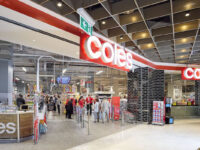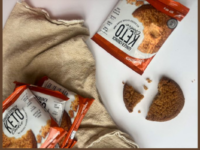 These days shopper behaviour can range from the weird to the wonderful, says Mel Scarf and Mal Gray of brand participation agency, 31ST:Second.
These days shopper behaviour can range from the weird to the wonderful, says Mel Scarf and Mal Gray of brand participation agency, 31ST:Second.
1. Trolley rage
We’ve all been there. It’s 5.30, you’re whizzing through the supermarket, trying to get home for dinner. Suddenly you get caught behind a ‘dreamer’ in the pasta section, so you gently squeeze past him with your trolley. At least, that’s the nicer version of the story.
Studies show that shoppers behave more aggressively at peak times. In 2012, a 60 year old man was knocked down by an aggressive trolley shove while pre-Christmas shopping in a UK supermarket. Tragically, he died as a result of his injuries, while a 30 year old woman was charged with inflicting grievous bodily harm.
2. App attack
In this age of smart phones and tablets, we have a new generation of mini-consumers who have grown up with touch screen technology. With fast downloads and intuitive swipe gestures, children can quickly master an app-based challenge, building piles of ‘treasure’ as they play.
What’s less impressive is how quickly they can damage their parents’ bank balance, through accidental in app purchases.From across the world, children as young as eight years old are reported to have spent thousands in just a few days, freezing their parents’ bank accounts in the process. In 2014, Apple agreed to refund at least $US32.5 million ($A36.36 million) to US customers for children’s purchases from its online App Store without parental consent.
3. ‘Unrewarding’ loyalty
Have you ever really thought about what retailers are doing with all the data collected from loyalty cards? From big retailers down to your local coffee shop, loyalty cards are everywhere – rewarding you for your business, or more to the point collecting data for marketing gurus to analyse. An example of this gone wrong was in the US, where a father discovered his teenage daughter was pregnant via retailer giant, Target.
The angry father demanded to talk to a manager when his daughter received coupons for baby clothes and equipment. After much apologising from the manager, the father called back and said,” It turns out there are some activities in my house I haven’t been aware of, she’s due in August and I owe you an apology”.
4. Woolies nail ‘Pester Power’
Any parent is well versed on the power of the ‘pester’ and we’ve all been guilty of buying unnecessary items to keep the peace. Woolworths took ‘pester power’ to a new level with the Aussie Animal cards.
At our local suburban Woolworths we saw children throwing tantrums about elusive missing cards, mums switching retailers or making unplanned trips to try and collect all the cards. Not to mention the playground buzz and the banning of cards in classroom. Stroke of genius you might say, the results speak for themselves as the Woolworths group achieved sales growth of 5.9 per cent which was double the rate of growth of the previous quarter.
5. Name and claim
Do you remember that kid at school whose surname started with Z, the one who had had to listen to 25 other children say “here” each time the roll was called? It turns out he or she is now the one grown up who is more likely to be a super shopper than the rest of us.
A US study notes the ‘last name effect,’ where people whose surnames start with letters later in the alphabet were more likely to make fast purchasing decisions. The theory is, all those years of eagerly waiting to be heard has trained participants’ minds to anticipate opportunities and act quickly.
6. Basket case
It turns out that it’s not only trolley shoppers who are feeling the strain. Shoppers who swing a basket down the aisles are almost seven times more likely to pick up extra treats, according to recent studies. Researchers found the physical tension and strain of carrying a basket encourages the shopper to seek immediate gratification and reach for ‘vice products’ such as chocolate, lollies, and soft drinks. You could argue that carrying a basket through the entire supermarket is a mini-workout, so maybe you’ve earned that sneaky reward!
Mel Scarf is an account director and Mal Gray is art director from brand participation agency 31ST:Second















